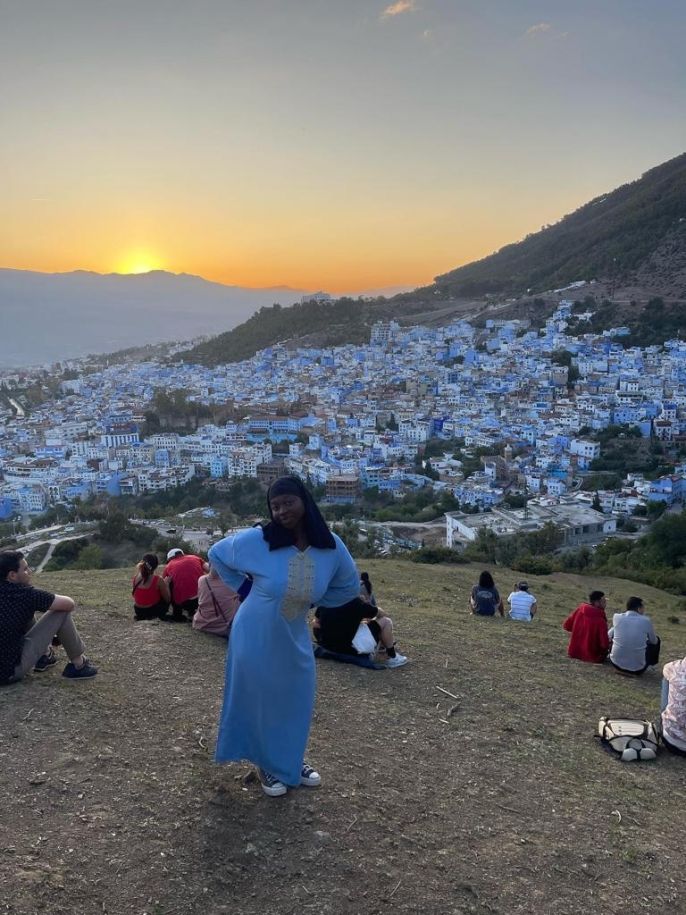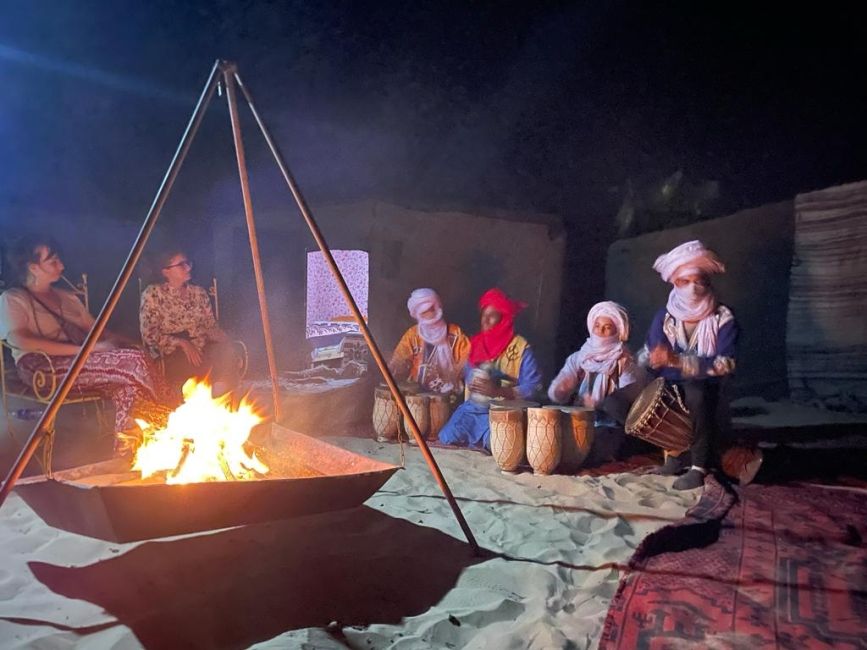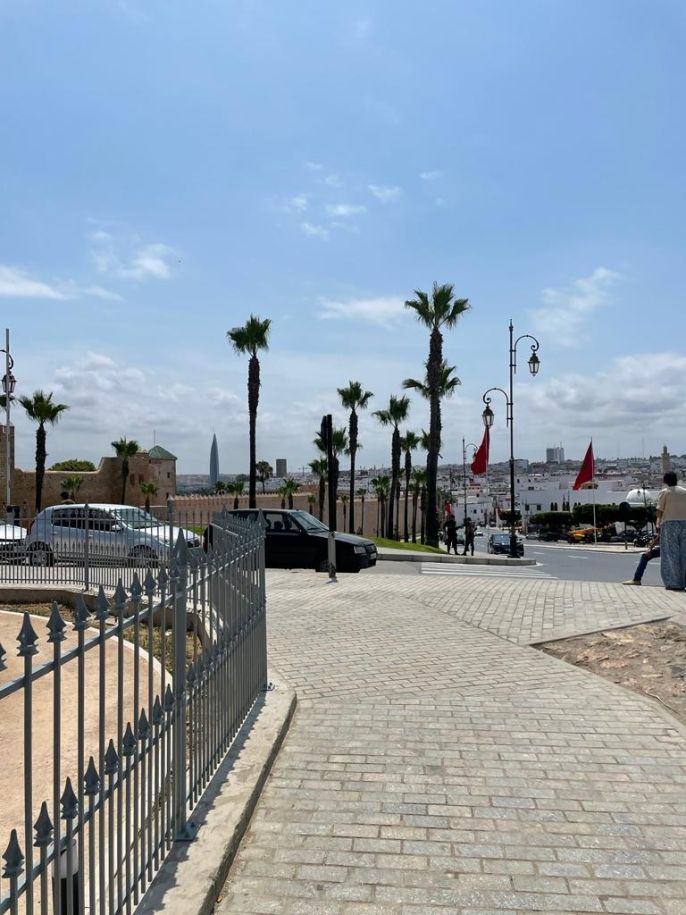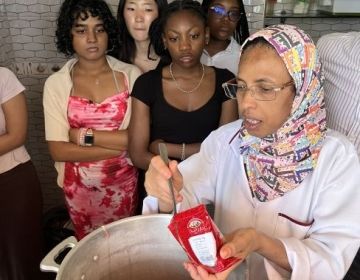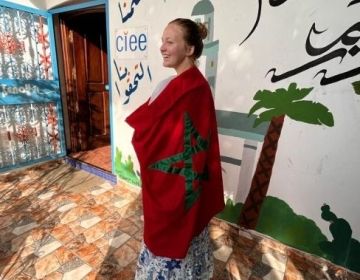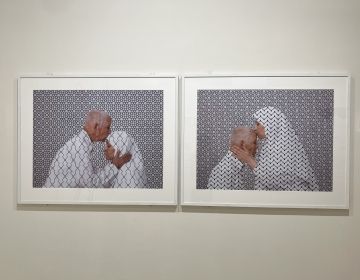“Thank yo-”; “Mashi Moushkil!” - An Homage to Moroccan Hospitality
“Mashi Moushkil”, “Mashi Moushkil!”, “Mashi Moushkil?” Mashi Moushkil, (transliterated from Arabic), translates to no problem in Moroccan Arabic (Darija). If you ever visit the beautiful country of Morocco, you will hear this phrase more times than you can count.
Moroccans are genuinely forgiving people. The relationship between this and Morocco being an Islamic country is undeniable. Islam encourages forgiveness and not letting anger seep into your heart for a prolonged period of time. If you spill a drink on the floor, “Mashi Moushkil.” If you break a glass, maybe even their favorite glass “Mashi Moushkil.” If you are running late “Mashi Moushkil.” To that last point, Morocco can be a very laid back society in that they aren’t controlled by the parameters of time as some in more Westernized societies would be. They manipulate time in whichever way seems to fit to what the task at hand is. When you walk into a shop and want to bargain with someone the store owner expects you to take your time and engage in conversation, maybe ask about their children, and look at many different products. The person that you are simultaneously supposed to be meeting can wait. Once you finally finish up and meet up with your friend, don’t even try to say “I’m sorry for being late” because you will get caught off with a “Mashi Moushkil.”
During my first week here at Rabat, Morocco I was almost overwhelmed by it. I came in to my homestay and sat down to eat, half-expecting to serve my own food and pour my own tea. But before I could even have the thought there was a hand placing khubz (bread) in front of me and pouring my tea from a height higher than their head for me. As I start to say “Shukran” (Thank you) I’m thwarted by a Mashi Moushkil! The hospitality in Morocco translates to many different environments during this program. From the frequent meals offered at your homestays to the flexible excursion planning at the CIEE office to the free fruit offered at vegetable stands, Moroccans run on hospitality. Entering the environment while coming from a more individualistic society makes you much more appreciative for the kindness that human beings can offer.
As I have been given the opportunity to visit Fes, Marrakesh, Chefchoen and more, the
hospitality is a common thread through it all. In Fes, several locals would volunteer to lead us to beautiful and secretive sightseeing locations without us having to ask them to. In Marrakesh, I stayed with the extended family of my host sister and they gave me just as much space in the house as the rest of them as well as gifting me beautiful pieces of jewelry that they wouldn’t need anymore. In the Sahara Desert, our camel ride tour guide, sprinted up sand dunes working against the wind simply to capture stunning moments for us on our little iPhones. On the long train ride on our way to Fes, a passenger laid out a pile of pistachios offering (or more insisting) for us to take some. The examples are truly endless.
After spending only a month studying in Rabat, Morocco, I will soon be returning back to the states. I envision myself trying to guide more people who are lost or donating leftover food or giving sadaqaat (charity) regularly because in the grand scheme of things it really is “Mashi Moushkil.”
Author: Mariam Hydara
Related Posts
On Fridays, We Eat Couscous
Couscous is a traditional Moroccan dish, eaten on Fridays - the day of congregational prayer. Huge groups gather around one big table a eat the dish together, normally by hand... keep reading
Moroccan Women's Football Team Making History
Football, football, football! Football, known as soccer in only a few countries, finds its origins all the way to the time of the Aztecs. However, the game we know today... keep reading
I'm sorry / I forgive you: Finding Meaning in a Mirrored Image
This past week, I had the opportunity to visit the Mohammed VI Museum of Modern and Contemporary Art for the second time during my stay in Morocco. The museum, easily... keep reading
